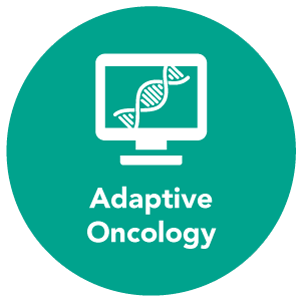Researchers from OICR and UHN have developed a predictive test that measures fragments of tumour DNA in the bloodstream.
A blood test developed by OICR-supported researchers has shown the potential to predict how patients with various types of cancer will respond to immunotherapy without needing to take a tissue biopsy.
The test, recently described in Cancer Discovery, harnesses an innovative technique called ‘cell-free methylated DNA immunoprecipitation sequencing’ to detect tiny pieces of cancer DNA circulating in the bloodstream.
Blood tests for cancer and other ‘liquid biopsies’ have emerged as intriguing alternatives to traditional biopsies, which can be invasive, painful and sometimes impossible for patients, depending on the location of their tumour.
But many liquid biopsies still need a sample of tumour tissue for reference that must be taken with a biopsy. That’s what sets this new test apart.
“This is a groundbreaking study, and the results demonstrate the promise of what are called ‘tumour-naïve’ assays to help guide cancer treatment without the need for a tissue sample,” said Dr. Lillian Siu, Senior Scientist at Princess Margaret and one of the study’s senior authors.
Siu, OICR’s Director of Genomics Dr. Trevor Pugh, and a team of researchers from OICR and Princess Margaret Cancer Centre (University Health Network) found that the amount of these DNA fragments detectable before and after a patient was treated with pembrolizumab – a type of immunotherapy – was a good predictor of whether their cancer would progress after treatment and whether they would ultimately survive the disease.
“A tumour-naïve assay like this has the potential to stratify risk without relying on tissue samples, and that could mean faster time to diagnosis and initiation of treatment,” says Dr. Eric Stutheit-Zhao, Postdoctoral Researcher at Princess Margaret and co-first author of the study.
A total of 204 blood samples from 87 patients were tested in OICR’s Genomics lab as part of the study. Researchers found that a decrease in the amount of methylated DNA over the first six weeks of pembrolizumab treatment was linked to a 60 per cent lower risk of death and a 65 per cent lower risk of disease progression compared to the reference group.
“We observed that a decrease in methylated ctDNA was associated with better outcomes, including progression-free survival and overall survival,” said Dr. Enrique Sanz-Garcia, Clinician Investigator at Princess Margaret and the study’s other first author.
This study comes out of the INSPIRE clinical trial, a collaboration between OICR and Princess Margaret led by Siu.
Previous INSPIRE research has shown the connection between circulating tumour DNA and how head and neck, breast, ovarian and other solid tumours respond to pembrolizumab. Those prior studies relied on a tumour-informed approach that required DNA sequencing of tumour samples to guide design of the cell-free DNA test.
This new work and other studies have generated a lot of excitement about blood tests and their potential to detect and diagnose cancer more accurately and with less burden on patients. Pugh also co-led a landmark study published last year where blood tests were used to detect cancer months earlier than imaging in patients with a rare form of hereditary cancer syndrome, and OICR has made liquid biopsies a key part of its research strategy.
“Liquid biopsies have the potential to change how we screen for cancer and monitor the progress and cancer treatment,” says Pugh. “And assays like this, which don’t require a reference tumour sample, could help unlock that full potential.”
This work was supported by OICR, the Princess Margaret Cancer Foundation, the Terry Fox Research Institute, the Princess Margaret Cancer Centre Global Oncology Program, the Cancer Research Institute, and Merck.





